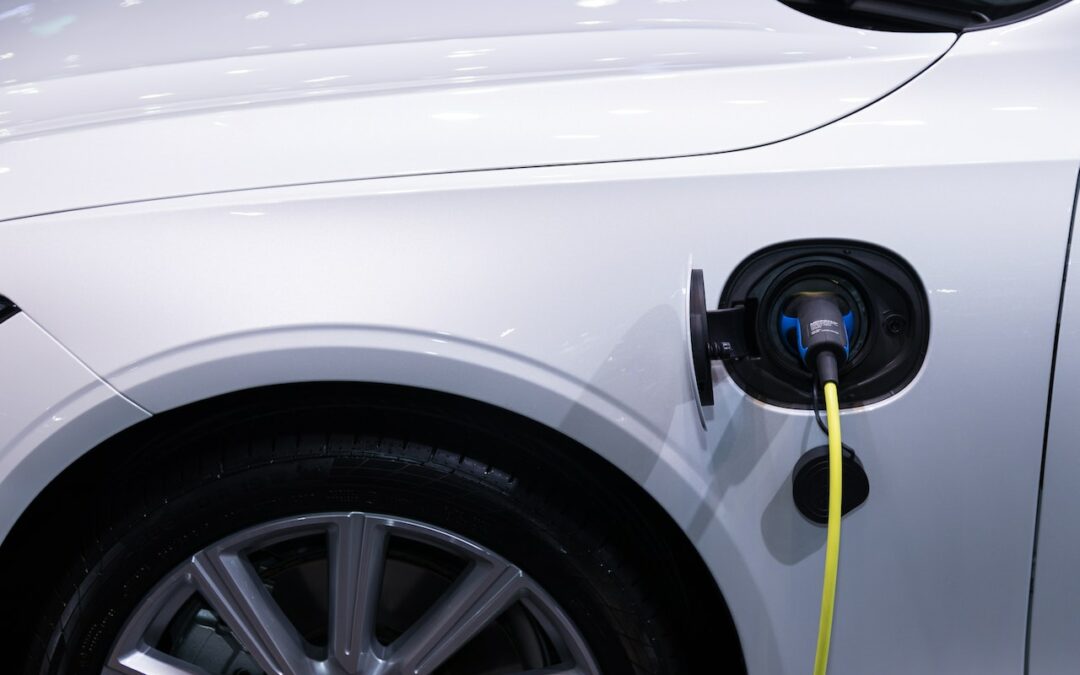
by Komoneed | Jul 18, 2025
Schneider Electric, a leader in the digital transformation of energy management and automation, is celebrating a significant milestone in its long-standing partnership with Blue Connections IT, helping the company on their path to another year of carbon neutrality.
The leading Australian-owned provider of comprehensive IT solutions, Blue Connections IT has incorporated several sustainable features into its infrastructure, including a state-of-the-art, six-star building tied to its ongoing mission to reach net zero. To enhance energy efficiency, the building has been designed with solar panels, double-glazed windows, low-power energy lighting and an advanced heating and cooling system connected to solar power. Recycled rainwater is also used across all toilets within the building, further reducing environmental footprint.
Recent research from Schneider Electric’s ‘Sustainability Index, 2024’ found that while 70% of corporate decision-makers are discussing their Scope 1, 2 and 3 emissions, only 10% have a strategy in place for managing Scope 3 emissions — created up and down an organisation’s value chain. This showcases there is a fundamental change needed for Australian businesses to meet the new climate reporting requirements.
The new standards, set by the International Sustainability Standards Board (ISSB), are set to come into effect from 2025. The rules will require companies to disclose extensive information on climate-related issues, including governance, strategies, risk management, metrics and targets. With its new carbon-neutral status, Blue Connections IT is an example of an impact maker company leading the way in this area already as we move towards a net zero carbon future.
“We are proud to partner with Blue Connections IT and celebrate this impressive milestone. The company is setting a powerful example of how businesses can take proactive steps towards sustainability. This achievement showcases Blue Connections IT’s commitment to environmental responsibility and proactive approach to integrating sustainable practices into every aspect of its business,” said Farokh Ghadially, Vice President of Secure Power from Schneider Electric.
As of 2022, Blue Connections IT had successfully reduced its greenhouse gas emissions by 17.1%. The company remains committed to achieving a 20% reduction across its supply chain, with progress continuing toward that target. This came after the installation of new technologies, such as Schneider Electric’s in-row coolers in its server rooms and electric vehicle (EV) chargers to power its fleet of 20 EVs, effectively reducing power consumption and carbon emissions.
“Our partnership with Schneider Electric has spanned over 25 years and has been a critical factor behind why we have been able to achieve carbon neutrality. Carbon neutral wasn’t a term when Blue Connections IT was first founded, and it’s been fantastic to have the support of sustainability-focused organisations to help us on our own journey towards net zero,” said Gordon Brownell, CEO of Blue Connections IT.
The company continues to invest in technology that will assist in its goal of reaching net zero and is looking to implement Load Management Software (LMS) to optimise energy usage and continue to drive efficiency across its business.
“We are committed to leading by example in our industry, showing that it is possible to implement solutions that have significant environmental benefits without compromising on growth and innovation,” concluded Brownell. For more information about Blue Connections IT’s journey to net zero, visit Blue Connections IT and Schneider Electric Impact Maker site.

by Komoneed | Jul 18, 2025
Two new companies join the ranks of the latest Circular Fashion Index.
The post These are the 10 top circular fashion brands, according to Kearney appeared first on Trellis.

by Komoneed | Jul 17, 2025
While mountains are formed by geologic forces deep underground, they create space for unique ecosystems to form high above the Earth. Mountains’ harsh conditions and relative isolation have encouraged and sheltered varied biodiversity.
The post What Mountains Provide and Why They Need Protection appeared first on EcoWatch.

by Komoneed | Jul 17, 2025
Pictures of the new Range Rover Electric

by Komoneed | Jul 15, 2025
Swinburne University of Technology researchers have been awarded close to $920,000 to advance two projects for battery life and EV cybersecurity, securing a portion of over $46 million shared across 75 new projects.
The university received the funding in the latest round of Australian Research Council’s (ARC) Linkage Projects 2024. The scheme, part of the ARC’s National Competitive Grants Program, funds research that delivers practical benefits and strengthens Australia’s innovation and industry capabilities.
Swinburne’s Deputy Vice Chancellor Research, Professor Karen Hapgood, said, “These projects demonstrate how our researchers are partnering with industry to deliver practical solutions, from extending the life of battery systems to securing Australia’s electric vehicle infrastructure. It’s a powerful example of how university research is driving innovation and supporting a more sustainable, technologically advanced future.”
The first of the two projects, led by Professor Weixiang Shen, received $449,882 to extend the lifetime of battery energy storage systems for power grids.
“This project will enable my team to develop an innovative control strategy to actively manage the operating conditions of an individual battery cell using digital twin technology. It offers an excellent opportunity to implement and validate our approach in inverter-less battery energy storage systems provided by our industry partner, which uniquely enables cell-level control within the system,” Shen said.
“The project’s outcomes will strengthen Australia’s leadership in advanced energy storage technologies, support the growth of the domestic manufacturing sector, and contribute to the creation of high-skilled jobs.”
Aiming to enhance energy storage performance, the three-year project will develop new strategies to slow battery aging within each cell. It will use digital twin technology, combining deep learning and electrochemical modelling, to predict the impact of operating conditions on battery aging and regulate these conditions to control the aging process and extend battery life.
Working in partnership with Relectrify Pty Ltd, the project team will support Australia’s transition to sustainable energy by delivering longer battery life and reduced downtime so that battery systems can produce more over time.
The second project, led by Professor Yang Xiang, received $474,531 to address cybersecurity challenges in electric vehicle charging stations.
“This grant will allow my team to build advanced cybersecurity tools that address the challenges posed by the interaction between EV charging stations, diverse EVs, the national power grid and wireless communication protocols,” Xiang said.
“It creates a unique opportunity to generate novel research insights, validate solutions in real-world settings, and produce tools with strong commercialisation potential. Its outcomes support sustainable economic growth by enabling the safe uptake of EVs, reducing emissions and creating jobs.”
Electric vehicle charging stations are widely deployed, but they face complex security risks due to the diversity of electric vehicles, their connection to the power grid, and wireless communication with users. The three-year project aims to address these challenges by functionality-guided, update-guided and greybox-guided fuzzing techniques.
Working in partnership with T-POWER Pty Ltd, the project team will explore methods for testing charging stations and developing advanced tools to secure EV infrastructure and improve cybersecurity within Australia’s expanding sustainable transport sector.
Image credit: iStock.com/narvo vexar




